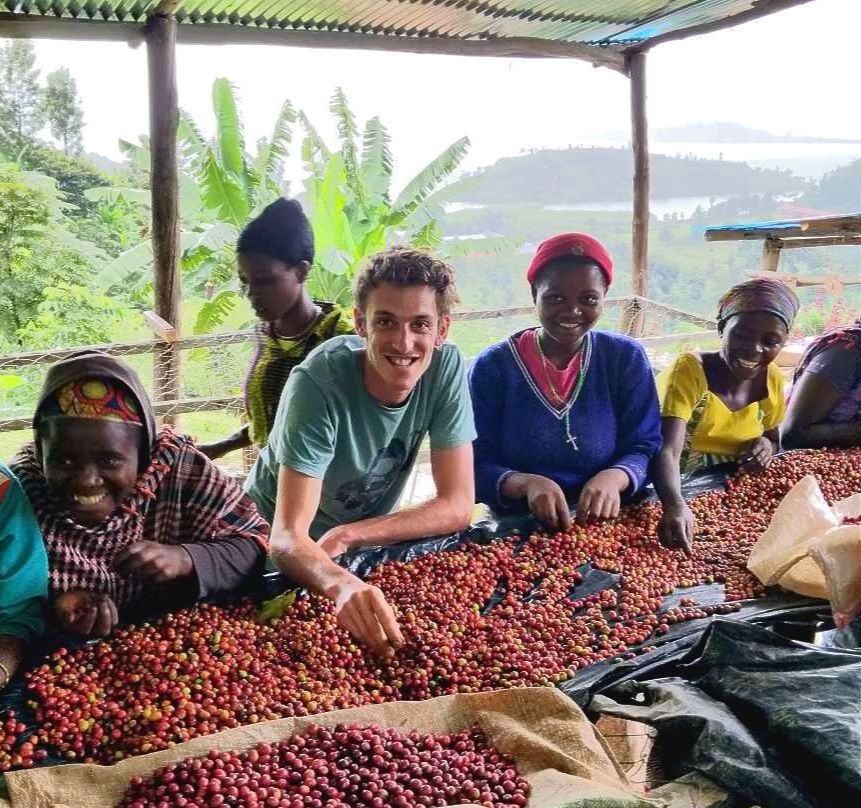From the Field, News
Monday, October 5, 2020
Talking about Value in Specialty Coffee
Coffee intrigues me. I’ve been in the specialty industry for a while and have worked many angles in the supply chain. With my experience viewing coffee from all these different vantage points, I’ve been spending a lot of time thinking about a coffee’s value.

When we talk about specialty coffee, we mostly talk about cup score and the complexity of flavor notes. But what is so interesting to me is how the backstory of the coffee’s journey becomes increasingly important and emphasized as coffee moves closer to the end consumer.
On the consuming side, we want to know the name of the producer, the history of the farm, the variety, how many days the coffee took to dry and so on. This information is important to the roaster so they can communicate facts about their product to their customers.
But why exactly? What is it about a backstory that makes coffee more valuable or that gives us a better understanding of its value?
In my search to understand coffee, I’ve worked alongside producers, roasters and the many stages in-between. I’ve experienced first-hand the physical effort coffee requires. After seeing my first coffee plantation in Vietnam and working in various coffee-related roles in Australia, I went to Mexico where I literally knocked on coffee farmers’ doors and asked to help them with the harvest. Over the course of nearly a year, I followed the harvest southwards and developed a deep appreciation for the time and effort that goes into producing specialty coffee. Back in Europe, I got a job in Bristol (UK) to work in a two-person micro-roastery where I got a taste of almost every coffee job you could imagine. Then, I moved to Rwanda, where I stayed with our good friend Emmanuel from Baho coffee. Working with him to set up his brand in Kigali and connect with European importers gave me insight into what it takes to build a supply chain and sell quality coffee from origin.
Most consumers are never going to work on a coffee farm during the harvest or spend hours standing in a roastery on a 100+/37+ degree day, but I believe that by making the stories of the many people behind each coffee more visible, we can add value to the supply chain, resulting in more profit and better livelihoods for everyone involved.
When it comes to building value by making the supply chain more visible and connecting consumers to the farmer who grew that coffee, I believe that’s where we, as specialty coffee importers, play a crucial role.
When I speak with producers, I see that we have an opportunity to help farmers increase their livelihoods by making the value of their work more visible to consumers, who are often a world away. As importers, we can use our sourcing networks to access information to share with our roaster clients. At the same time, we can ensure that producers receive prices that reflect their coffee’s ultimate value.
Sucafina is actively working to make the people behind a coffee more visible by investing in projects like Farmer Connect. Farmer Connect leverages the rapidly expanding field of blockchain technology to connect producers with roasters through a simple interface. It allows roasters to access information about each lot they purchase and communicate directly with the producer. In turn, producers can play a more active role in making themselves visible to consumers at the other end of the supply chain, where their involvement can directly contribute to increasing the prices of their coffee in the future.
I have come to believe that specialty coffee is not only about cup quality. It is about attributing value to coffee in a fair and sustainable way. It is about the quality of long-term relationships and trust and seeing the people behind the coffee supply chain.
That's what makes specialty coffee valuable to me.